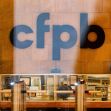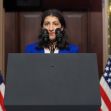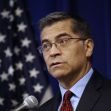Consumer protection laws flourished in the 1960s as Americans grew increasingly concerned about their health, safety, and economic well-being. The consumer movement was first led by President Kennedy, who proposed a Consumer Bill of Rights to Congress in 1962, which included the right to safety, to be informed, to choose among product offerings, and to be heard. President Johnson followed up on Kennedy’s initiative by creating the Office of the Special Assistant to the President in the White House, which was to coordinate efforts to give consumers more governmental protection than they were currently receiving.
As the government advanced consumer protection, private citizens were demanding more as well. The consumer movement took off with advocates like Ralph Nader, whose 1965 book Unsafe at Any Speed, led to the creation of the cabinet-level Department of Transportation and later the National Highway Traffic Safety Administration. The mandatory seatbelt legislation Nader advocated now saves about 375,000 lives each year.
Private and public efforts led to landmark legislation signed by Presidents Johnson, Nixon and Carter that enhanced consumer rights at the grocery store, where better nutritional labeling, stepped-up meat inspection and Truth-in-Packaging helped buyers get safer food and critical information about what they were buying. When Nixon appointed Virginia Knauer, the head of the Pennsylvania Bureau of Consumer Protection, as his Special Assistant for Consumer Affairs, he remarked that she “certainly will be able to get manufacturers in this country to tell the truth about their products.”
During the ‘60s and ’70s, the Federal Trade Commission and its Consumer Protection Division worked to safeguard against unfair, fraudulent and deceptive ads and practices by businesses. The Consumer Product Safety Commission was created to protect children and adults from unsafe products, and the Truth-in-Lending law and the Fair Credit Reporting Act made creditors disclose finance charges so consumers could accurately calculate the cost of credit.
Then came President Reagan. Under his administration, the White House consumer office disappeared, and the budgets and consumer protection efforts of many federal agencies were cut and their responsibilities diminished. President Trump went even further. For example, enforcement by Consumer Financial Protection Bureau (CFPB), an independent bureau within the Federal Reserve System, has dropped about 75% according to the Washington Post.
This history lesson about consumer protection is now taking a surprising turn. In his State of the Union message on February 7, President Biden shared his commitment to lower drug prices, stop “surprise medical bills,” protect seniors’ life savings by cracking down on nursing home fraud, stop doctors from prescribing unneeded drugs, permit over-the-counter hearing aid sales, and eliminate what he calls “junk fees.” Junk fees are “hidden surcharges too many companies use to make you pay more,” and can add up to hundreds of dollars each month.
While President Biden can use existing authority to eliminate many of these hidden fees, he is also urging Congress to pass his Junk Fee Prevention Act that will stop practices that cost consumers billions each year. The Act will: crack down on excessive fees for online purchases of concert, sports or entertainment tickets that can increase ticket prices by up to 20%; ban airline fees for advance seat selection that could keep parents from sitting with their children; eliminate “early termination” fees for those who want to switch service providers, and stop resorts from adding surprise fees to the cost people thought they had to pay.
Biden’s quest to remove junk fees has already begun. The CFPB has already caused 15 out of 20 of the nation’s largest banks to stop bounced check fees as “surprise overdraft fees.” The Department of Transportation has proposed a rule to require airlines and online travel companies to “show the full price of an airline ticket up front,” including baggage, seat selection and other hidden costs. His prompts have also led nine airlines to guarantee coverage of meals and hotels if flights are delayed or canceled.
In addition, the Federal Communications Commission has released new rules to require broadband providers to “use nutrition labels, similar to those used for food products,” to convey key information to consumers about internet service options.
On February 1, the White House announced two additional new actions to “further advance the President’s agenda of promoting competition in the American economy. First, the CFPB is proposing a rule to “slash excessive credit card late fees.” The White House believes the rule would save consumers as much as $9 billion a year in late fees. Second, the National Telecommunications and Information Administration within the Department of Commerce has completed a report of barriers to competition in mobile app stores and “give consumers more control over their devices.”
And there is a boom in consumer protection at the state level, too. For example, on February 14, California’s Attorney General and two state senators introduced a bill that would prohibit hidden fees or deceptive advertising practices where “a seller uses an artificially low headline price to attract a customer before revealing additional charges later.”
Perhaps it is too early to predict whether these federal and state bills will pass and if they will work if enacted. Time will tell whether they will make a real difference in the protection of consumers’ well-being or pocketbooks. But they might also be a move forward that could revive the glory days of aggressive consumer protection.






